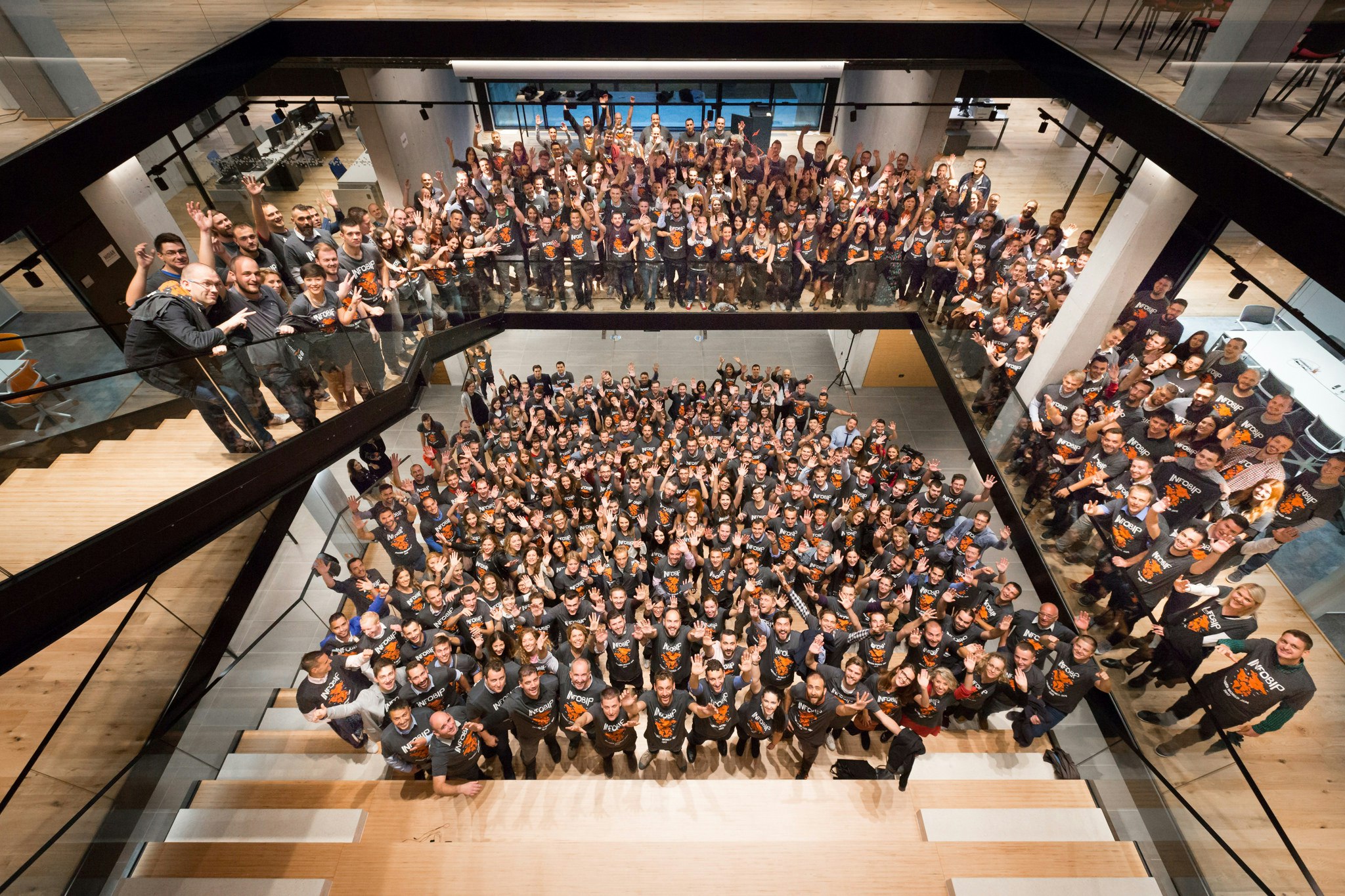Infobip is one of those big companies that no one has heard of but everyone has used. If you’ve ever received a message from your bank, or from Facebook or Uber, you’ve used Infobip. The Croatian company provides the messaging platform for some 750 banks, and works with some 650 mobile operators around the world.
Silvio Kutic, founder and chief executive, estimates that some 5bn people, or ⅔ of the world’s population have used the Infobip service, which is still run from Kutic’s tiny home town of Vodnjan, on Croatia’s Istrian coast.
Some 5bn people, or ⅔ of the world’s population have used the Infobip service.
Infobip is starting to get a little more recognition, though. It became Europe’s newest unicorn last month, when it raised $200m from One Equity Partners, at a unicorn valuation according to a Reuters story that quoted sources.
This is Infobip’s first-ever fundraise — the previous time the bootstrapped company took outside investment was when Kutic was still working out of a garage and borrowed some money from his parents to buy a bundle of SMS messages for his fledgling business.
Investors should, however, prepare themselves to be more familiar with the company — Kutic says he is planning to take the company public in three years. Whether the IPO will be in the US or in Europe, Kutic says he is still unsure. Nasdaq and the New York Stock Exchange, he says, might be better at valuing IT-based companies like this.
“But we would also consider London or Amsterdam,” he says.
What is it worth?
It’s too early to speculate what Infobip’s valuation might be when it gets listed. But competitors include Twilio, the US messaging platform, which has a market valuation of more than $31bn. Swedish rival Sinch, listed on Nasdaq Stockholm, has a market capitalisation of about $4.6bn.
We’re used to being very frugal at the company, now we don’t know what to do with all this money.
Twilio is a bigger business, with revenues of more than $1bn last year, compared to €602m ($711m) for Infobip. Sinch has revenues of $582m. But Twilio is lossmaking, whereas Infobip has been profitable almost since the start.
Infobip did not, strictly speaking, need the money from the recent raise. “We’re used to being very frugal at the company, now we don’t know what to do with all this money,” Kutic laughs.
“The fundraising was partly about raising our profile in the US. If we have investors it gives the company some validation,” he says.
Creating southern Europe’s engineering powerhouse
That said, Infobip will use the funds to increase the range of technologies it can offer customers. The coronavirus crisis has accelerated the need for businesses to communicate with customers digitally — Infobip has seen some 35% growth from last year. But keeping up with changes in technology are increasingly demanding.
“Customer preferences are changing fast. They want video communications with their doctor or banks and you have to be there to meet that need,” says Kutic.
Infobip is considering acquisitions to fill in engineering gaps.
The company started as a provider of SMS messaging services for businesses but has expanded to technologies like WhatsApp, video and chatbots. Kutic is determined to build everything in house.
“Our vision is to be an engineering powerhouse. We want to control the end to end experience, from the technology to the delivery mechanism. This has the advantage of quality, privacy and security,” he says.
Some of the funds will go to shoring up the 2000-strong engineering team, which operates out of development centres in Croatia, Bosnia, Poland, Slovakia, St Petersburg and Pune, India. This could involve acquisitions to fill in particular technical gaps, says Kutic.
Powering up on development is necessary, as competition in this area is increasing. Infobip doesn’t just compete with Twilio, Sinch and MessageBird, increasingly companies like Zendesk and Talkdesk are coming into the messaging platform market.

Learning through failure
Kutic is himself an electrical engineer, who walked out of his job at a state electrical utility at lunchtime on his first day, after finding the atmosphere too stultifying.
“The people were not very proactive and energetic. And the internet was really slow,” he says.
Kutic packed up his apartment in Zagreb and took the bus back to Vodnjan, where he worked on a series of failed startups.
“I tried a number of things, all around communications, but it took five years to get the product-market fit,” he says.
Finally, in 2006, an idea for an SMS messaging platform took off, with Kutic making in the first month more than he had the whole previous year. The customer base was international from the start with a number of German and Italian companies as the first clients. The company now has 65+ offices in 52 countries. But the headquarters itself has stayed in the 3,700-person town of Vodnjan. Infobip has a huge, shiny campus, built just 200 meters from the garage Kutic started out in.
“It’s a nice place to live. We are just 3 km from the sea. I just came from the beach,” explains Kutic in a morning call.
Some 10% of Infobip shares are owned by the staff.
The plus-side of being in the south-east of Europe is the strong engineering talent, says Kutic.
“The problem is the marketing, sales and management.” Infobip struggles to find people locally with experience of running a multinational sales organisation. “We are the only company in Croatia that is this international,” he says.
Luckily, Infobip has a strong culture of learning by doing. “We are always making mistakes and failing but that means we are also progressing,” he says. Infobip has created its own in-house academy, where every new employee spends at least two weeks learning the ropes.
If Infobip does IPO in three years' time, these learn-on-the-job employees will be in for a decent payday. Some 10% of Infobip shares are owned by the staff. Much like Romania’s UiPath, which is also considering an IPO, Infobip could become a big source of tech wealth in a country where average salaries still lag behind the rest of Europe.
“It will be a nice way of giving something back,” says Kutic.



